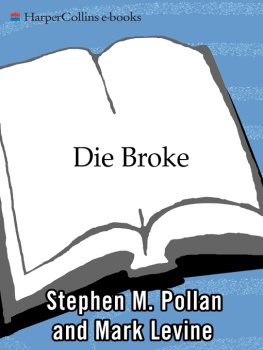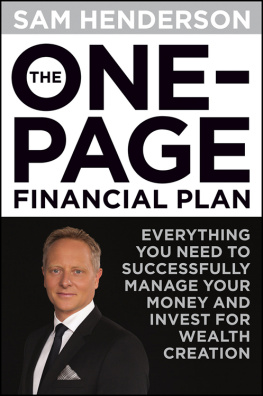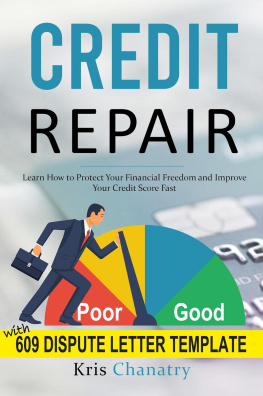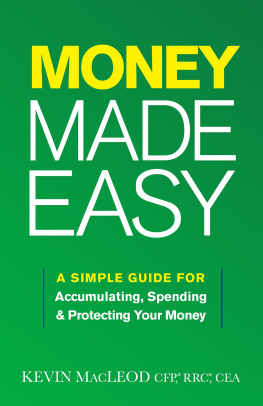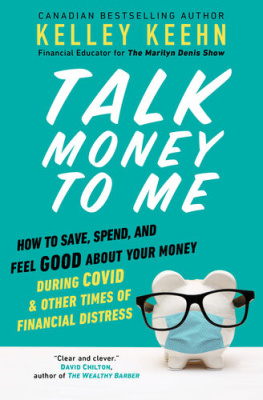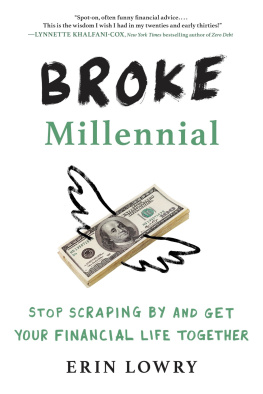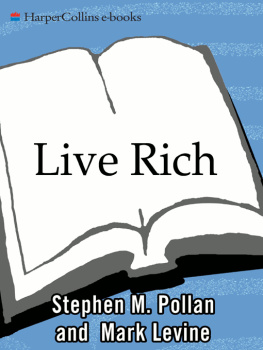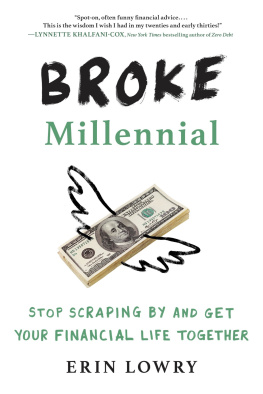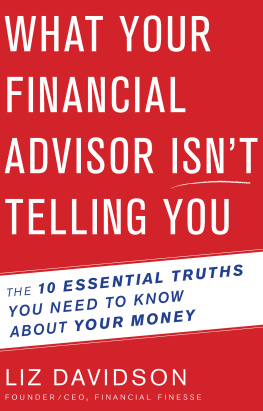Die Broke
A Radical, Four-Part Financial Plan
Stephen M. Pollan and Mark Levine

The authors would like to dedicate this book to their heirs
Contents
The authors would like to thank all the friends, clients, peers, authors, and experts who freely lent us their wisdom and their ears.
Special thanks to Laurence Hooper, John Koten, and all the editors at Worth for their willingness to let us explore contrarian ideas and their insistence that we back up our theories with solid factual arguments.
Thanks to Gary Ambrose, director of Personal Capital Management, Charles B. Goldman, executive director of the UJA Federation of New Yorks department of planned giving and endowments, and Neal P. Myerberg, vice president of Sanford C. Bernstein & Co. for their patience in providing us with an education.
Thanks to Jane K. Morrow, Michele Landes, Kim W. Mendola, Anthony Scamurra, and Leslie Burleigh for their continuing support and help keeping so many balls in the air at the same time.
Thanks to our agent, Stuart Krichevsky, and to our editor, Adrian Zackheim, for ensuring we didnt die broke while writing this book.
Thanks to Michael, Lori, Tracy, and Dana for proving the greatest legacies are your children.
Finally, wed like to thank Corky Pollan and Deirdre Martin Levine for helping us live rich.
Stephen M. Pollan and Mark Levine
Ive always said that I learn the most by speaking with my clients. Since the hardcover publication of Die Broke Ive had to expand that statement to include my readers.
Ive been overwhelmed by the positive response to Die Broke . I knew my contrarian advice worked for my clients here in New York City, since I see the positive results every day in my office. But in all honesty, I wasnt sure how my ideas would play in other parts of the country. The results have been, to say the least, gratifying. Clearly there is a need for a fresh look at personal finance issues, a reexamination of our entire approach to assets.
One of the most fulfilling things about being a personal consultant is having clients say youve changed their lives for the better. Since the original publication of Die Broke , readers have given me joy by telling me about the impact the book has had on them. I cannot tell you how rewarding it is to have people youve never met offer you thanks for something youve written.
Ive learned a great deal from those whove offered suggestions and amplifications to the Die Broke philosophy. As youll learn as soon as you start reading chapter 1, Im always open to new ideas. Some of the applications offered by readers have actually found their way into my practice, so the process has now come full circle. I look forward to more input from readers of this paperback edition. You can either write to me, care of HarperCollins, or, if youre online, send email directly to me at mark4smp@aol.com.
The realization that my iconoclastic personal finance advice works for Americans outside the metropolitan New York area led me to sit down with Mark Levine and write another book about the other half of my practice: career and business consulting. Its called Live Rich and brings the same kind of contrarian approach to earning money that Die Broke brings to spending money.
What Ive learned from writing both of these books and from speaking with readers is that theres a secret to being happy. Its freedom. That sounds very simple, but its true. Having the freedom to earn and spend your money when and how you choose is more than just empowering, its physically, psychologically, and even spiritually liberating.
Die broke.
Live rich.
Be happy.
Stephen Pollan
Little River Farm
Sharon, Connecticut
Die broke. Turn the phrase over in your mind. At first it sounds insane. Instinctively its something to avoid at all costs, not something to pursue with a vengeance. It immediately conjures up images of Dickensian poverty; of Depression-era families having their mortgages foreclosed on by Lionel Barrymore. But fight off those instinctive responses and reflex images and think about it for a minute, really think about it.
Whats wrong with dying broke? What good will money do you when youre dead? Isnt there something ironic about hoarding money for a time when you cant spend it? But what about your family, you worry; how will they get by? Well, why cant you take care of them when youre alive? Isnt it daft for them to have to wait for your death to be taken care of? Okay, you say, but what about those images of poverty the concept instantly brought to mind. You just cant shake them. Dont. In fact, look at them really closely. Theres something very important about them you need to focus on. Theyre from the past.
STOP LIVING IN THE PAST
Are you living in Victorian England? Does your hometown look like Bedford Falls? Of course not. Youre about to enter the twenty-first century. Your home, regardless of where its located, is probably closer to that of the Jetsons than that of the Cratchits. Yet the images of financial ruin that instantly spring to your mind are from the turn of the prior century. Thats because your entire approach to money and career, and much of your approach to life, is based on principles and beliefs that sprung from the experiences of the past. Your fear of dying broke is an early-twentieth-century fear carried forward to a twenty-first-century life.
Rather than running your twenty-first-century life by up-to-date rules, youre using outdated nineteenth- and twentieth-century ones. Youre taking practices designed to deal with the shift from an agrarian to an industrialized society and trying to make them fit the shift to an information world. Youre following financial patterns sketched out in the Great Depression at a time when the Dow Jones is over 7,000. Youre managing your career based on advice formulated when every man still wore garters to hold up his socks and the only women in the corporate world were in the secretarial pool. And youre still running your life as if your family looked and lived like the Cleavers. Thats why youre experiencing an overwhelming sense of uncertainty, insecurity, and fear.
YOURE NOT ALONE
I can make these generalizations about your feelings because I speak with people like you every day. Im a financial and legal consultant on New York Citys Upper East Side. Most of my clients are baby boomers from what used to be called the upper middle class. While only a few of them would have felt at home in Tom Wolfes Bonfire of the Vanities , almost all of them aspired to be masters of the universe in the 1980s. Today they have combined incomes of well over $150,000, live in apartment buildings with doormen or rural homes on more than an acre of land, take European vacations, go out to Thai restaurants, shop at Barneys, and buy wine by the case. They belong to health clubs and send their kids to after-school programs. They grind their own coffee beans.
While there are some uniquely New York elements to my clients personas, theyre just like lots of other successful baby boomersincluding you. Theyve succeeded in acquiring more possessions and experiences than their parents had at their age. They hold down decision-making and policy-setting positions in corporations, are running their own successful small companies, or have made a name for themselves in a competitive creative field. At work they have staffs and personal assistants. They read The Wall Street Journal . They have accountants to prepare their taxes, therapists to help them with their psyches, nutritionists to help them with their diets, and personal trainers to help them build up their pecs.

